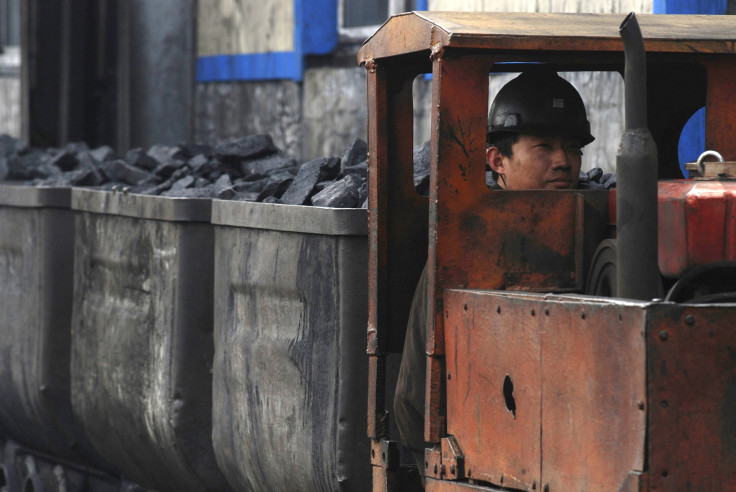More China Trust Product Defaults Trigger Shadow Banking Fear

The relief brought by a last-minute bailout that averted the default of a 3 billion yuan ($495 million) trust product in China was short-lived.
The rescued product had been backed by loans to a now-defunct coal mining company, and now, merely a week after the bailout (by an unnamed third party), another high-yield investment product backed by a loan to a debt-ridden coal company, Liansheng Group, is making headlines. Only this time, technical defaults have already occurred, underlining the financial stress in the country’s vast shadow banking sector.
These investment products are issued by trusts, which often funnel money into industries that banks are reluctant to lend. In most cases, investors have no idea where the money is being invested. For all they know, they are purchasing these products through major state-owned banks and are promised handsome interest returns.
Among these capital-intensive and high-risk areas is the coal industry. Chinese regulators have long expressed concerns about the risks in the coal industry and have in effect barred banks from lending cash to miners. Yet, shadow banks are more than willing to plug the financing gap.
From late 2011 to early 2012, Jilin Trust, a nonbank financial institution, sold to investors an investment product worth 1 billion yuan backed entirely by loans to Liansheng Group.
According to the official Shanghai Securities News, the first four tranches (out of a total of six) have already fallen into default. They are valued at a combined 764 million yuan.
The fourth tranche of Jilin Trust’s product named “Songhua River #77 Shanxi Opulent Blessing Project,” worth 289 million yuan, was distributed by China Construction Bank Corporation (SHA:601939), the country’s second-largest lender, to its retail customers as wealth management products (WMPs), offering an attractive 9.8 percent annual return.
“It [the fourth tranche] matured on Feb. 7, but CCB passed on an announcement from Jilin Trust saying, ‘We currently can’t be certain when [Lianmeng] funds will be returned,’” the Shanghai Securities News quoted an unnamed investor in the trust product as saying.
The final two tranches, amounting to a further 209 million yuan, will mature in the coming weeks, the paper reported.
Overcapacity and plunging coal prices have hit Chinese coal miners hard. The fortunes of Liansheng and its charismatic founder, Xing Libin, mirrored the rise and fall of China’s coal mining sector.
Xing gained fame in China for spending 70 million yuan on his daughter’s 2012 wedding. He rented three jets to fly family and friends to the resort island of Hainan, brought in pop stars for a gala concert, and assembled a fleet of six Ferraris for the wedding procession. More than a year later, he found himself struggling under a pile of debts.
Last November, Liansheng Group, which used to be the largest private coal firm in Shanxi province, received approval from the Liulin County People’s Court to restructure the company, according to the state-run Xinhua News Agency. Liansheng Group has debts of nearly 30 billion yuan and “has lost the ability to repay,” the report said.
Though the maturity date has already passed, producing a technical default, Jilin Trust appears to be working to recover investor funds.
“Restructuring isn’t bankruptcy. As far as we know, there is no problem with the firm’s assets. The firm is in negotiations with investors,” Shanghai Securities News quoted an unnamed official of the trust company as saying.
Liansheng’s default is not the first in China’s trust sector, and it is unlikely to be the last.
More than 8,500 trust products are due this year, valued at roughly 1.3 trillion yuan. That’s a more than 50 percent increase from 2013, reports the Chinese-language 21st Century Business Herald. Clearly, 2014 will be a year to test the Chinese government’s determination to reform its financial sector.
© Copyright IBTimes 2024. All rights reserved.






















